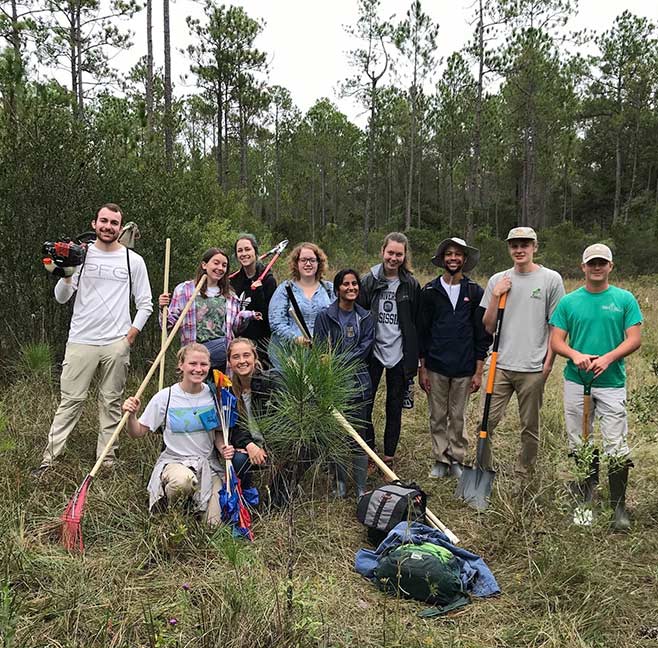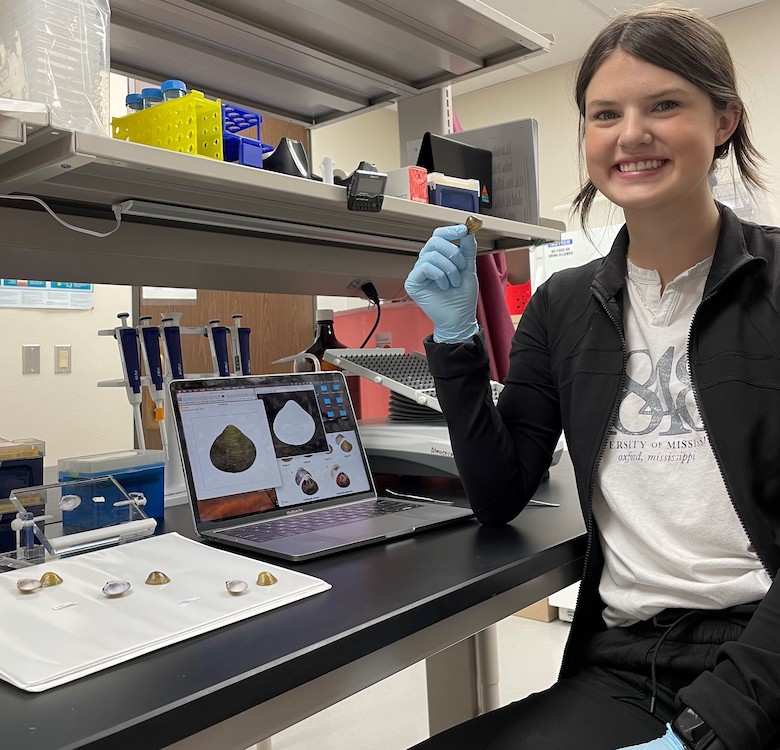
Griffith Williams is on the far left.
Meet Griffin Williams, a doctoral student working towards developing solutions for the lack of tree regeneration and invasive species in Southeastern forests. His field site is the Strawberry Plains Audubon Center in Holly Springs.
I’m originally from the Gulf Coast and grew up playing in and around old-growth trees and the wetlands of the Mobile Bay. The coast has boomed in population and development and, as a result, the natural beauty of the coast and the native ecosystems are being destroyed by human degradation, negligence, and/or pollution. I love wetlands and the coast as a whole, but I felt more of a calling to the woods and trees in terms of conservation. I started to learn about forest restoration in college and the process of transitioning southern forests or woodlands to their historic state before the Indian Removal Act and intense agriculture of the 1800’s. Forests in the Southeast have changed dramatically since European arrival and barely resemble their previous state in many areas. Despite the century-long changes, restoration treatments have increased native plant diversity and been successful in transitioning the forests back to their historic states. An unintended consequence of these restoration treatments is an increase in invasive plant species. These invasive plants can stall the restoration process and prevent native diversity from flourishing. Ultimately, I am studying the mechanisms by which these invasive plants become so competitive to native plants and the underlying mechanisms that may prevent successful restoration.
I, like most other biology graduate students, chose a professor and a project rather than a school or program when applying to graduate schools. I looked for scientists actively doing restoration work in the Southeast with a focus on hardwood species and understory plant diversity. In my undergrad career, my research was on hardwood tree reproduction and understory vegetation in Memphis, Tennessee. I wanted to expand on the hypotheses I encountered in that research and work towards developing a solution to the issues of the lack of tree regeneration and invasive species in Southeastern forests. Dr. Brewer just so happened to fit perfectly for those goals and the University of Mississippi is in a great location to where I wouldn’t have to travel far to be at my field sites. Talking with other professors after I arrived helped me develop my ideas further and incorporated areas I didn’t consider on my own. Overall, everything seemed to fall into place perfectly.
I initially came into graduate school thinking I would go into academia and become a professor, but I am considering going into governmental research or a conservation organization instead. I still enjoy teaching, but I’ve seen the benefits that come from the other side of the research coin too. I may be able to focus more on exploring and solving the questions and problems I have with restoration and invasive species in a research focused job. However, I may have more freedom in a traditional academic career and be able to teach undergrads while including them in my research on a wider variety of topics.
Research interests are greatly varied in the Department of Biology. Considering a variety of factors including the distance to a field site or availability of lab machinery, the University of Mississippi offered the best graduate school situation and breadth of studies relating to my research goals.

